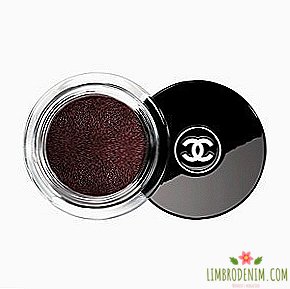"Victory over the opponent is more important than the title": I am a female MMA fighter
YANA KUNITSKY - ONE OF THE MOST RECOGNIZABLE Russian fighters in women's mixed martial arts, even though at home, as the athlete herself notes, are more skeptical about women's fights. By the age of twenty, she won several major tournaments in MMA, after which she took a pause of four years for childbirth and childcare - and returned to martial arts again to win another title. In March of this year, she made her debut in the Ultimate Fighting Championship, one of the most famous promotions of mixed martial arts, and although this debut turned out to be rather crumpled, many fighters can only dream about it. We asked Yana to tell how MMA fighters live and about the prospects for women's mixed martial arts in Russia, which still look vague.
About mixed martial arts in Russia and in the States
In Russia and in the US, women's martial arts are treated very differently. In Russia, I can safely walk down the street and no one will come up with a request to take a picture or take an autograph. In the US, MMA fighters are much more recognizable people: they meet you there at airports. And this is an indicator of popularity. In Russia, I constantly hear that MMA is not a "female" sport, in the States there is no such thing anymore.
We still have very few women involved in MMA, because society is skeptical about this. They are not ready to watch women's fights: a survey was conducted in Russia, and sixty percent of the respondents answered that they were against. Therefore, girls just do not go to do it.
In Murmansk, I had to train alone, but then I was still a child (Kunitskaya is engaged in martial arts since the age of four. - Ed.)and I simply had no choice where to train. And since then, little has changed: in St. Petersburg, Moscow, Dagestan, you can still maintain your level, but only there. And the opportunity to go somewhere is not at all.
And it's not even prejudice. Mixed martial arts in Russia simply do not have such a base as, say, freestyle wrestling or boxing. MMA is far behind them: there are not enough coaches, the training process is not well organized. But MMA is developing in any case, and it is developing rapidly, although I’m not sure that right now we will have big tournaments. Its small representation is all that we can count on now. In order for a big breakthrough to happen, it is necessary that an entire generation become interested in this. So far, MMA is not the kind of sport that girls are sent to do in Russia.
On returning to the sport after the birth of a son
Returning after giving birth in MMA was not hard. After three or four months, I began to recover completely. I had a break of four years, and during that time I missed a lot. It turned out well: during this time the women's division of my weight category appeared in the UFC. There are a lot of girls, and in order to find a rival, I will not have problems. That's why I came back: I saw a new perspective and decided it was worth a try.
I did not have to choose a rival for the first fight in the UFC(in the first fight in the UFC, Kunitskaya was set against Brazilian Christian Justin, nicknamed Cyborg, performing in a heavier weight category. She won the fight by technical knockout in three minutes. - Ed.). It was hard in the sense that I had a huge media load because I was released on a short notice.(The fight between Kunitskaya and Justin was declared less than a month before the event. - Ed.). But still, this fight has become a tremendous experience for me, and this will help me next time. I hope that in September I will have the next fight - for the time being I don’t know exactly with whom, although we have some certainty about the opponents.
About whether you can make a living in MMA
The media component is highly dependent on the fight. If the fight is big, then the media events take a lot of time. And this is very good - it greatly affects the popularization of sports.
At the professional level, they fight on average up to thirty-six years, although there are also those who do this at forty-forty-one. After that, everyone has different ways: someone coaches, someone goes into business. It is possible to earn a living only in martial arts, if you compete in the UFC - there is still a different level of fees(for his first fight, Kunitskaya was rumored to have received a six-figure fee in dollars, the exact amount is unknown. Ed.). There is advertising, but in the UFC this is more difficult, because they have a contract with Reebok [and thus, the fighters cannot enter into contracts with other clothing manufacturers]. Some advertising contracts fall, but very small. Let's just say it's not something that people can be happy with here.
About the most offensive lesions
The optimal interval between battles is three to four months, but this is not always the case, sometimes the pause lasts for six months. At the same time the battle itself lasts no more than fifteen to twenty five minutes. How long does recovery take? If nothing much happened, then the next day you go out and start to train. If the fight was hard, it happens that after three days.
Every defeat is insulting. But when there is a fight and you feel that victory is in your hands, and then suddenly you miss a blow - this is the most offensive. And there is nothing more pleasant than a victory over a principled rival. It is always more important than the title. This is not an element of the show, these emotions are very real.





